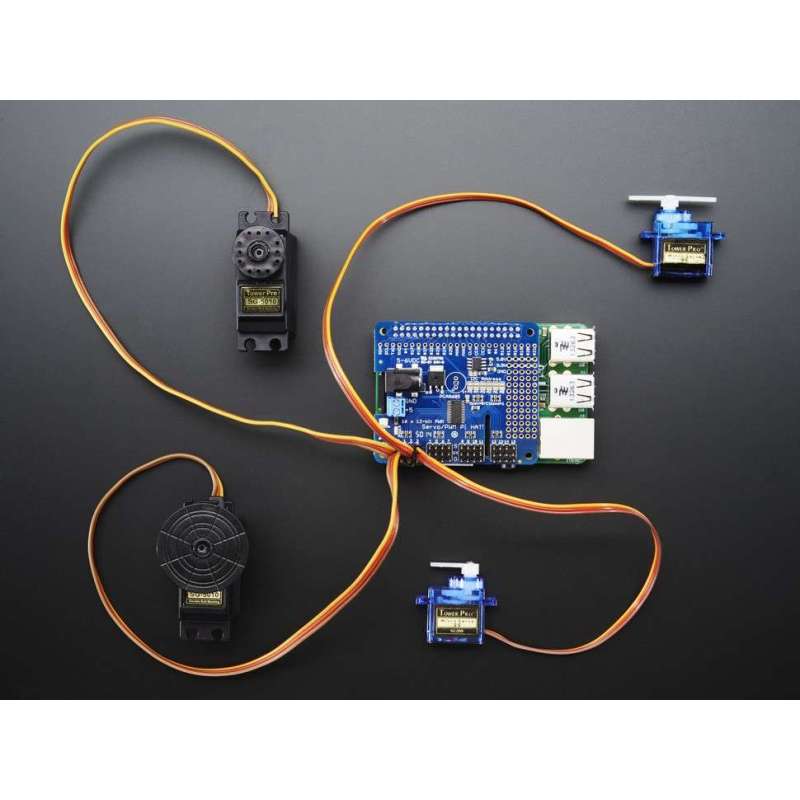




RLX COMPONENTS s.r.o. , Electronic Components Distributor.
RLX COMPONENTS s.r.o. , Electronic Components Distributor.
Adafruit 16-Channel PWM / Servo HAT for Raspberry Pi - Mini Kit (Adafruit 2327)
The Raspberry Pi is a wonderful little computer, but one thing it isn't very good at is controlling DC Servo Motors - these motors need very specific and repetitive timing pulses to set the position. Instead of asking the Pi Linux kernel to send these signals, pop on this handy HAT! It adds the capability to control 16 Servos with perfect timing. It can also do PWM up to 1.6 KHz with 12 bit precision, all completely free-running.
For use with Raspberry Pi Model A+ or B+, can be used with the Model A or B if you use a tall 2x13 header instead of the included 2x20.
The Adafruit 16-Channel 12-bit PWM/Servo HAT will drive up to 16 servos or PWM outputs over I2C with only 2 pins. The on-board PWM controller will drive all 16 channels simultaneously with no additional Raspberry Pi processing overhead. What's more, you can stack up to 62 of them to control up to 992 servos - all with the same 2 pins!
Best of all, we even have a Python library you can use, so you'll be up and running instantly, to make your robotic creation com to life. The Adafruit PWM/Servo HAT is the perfect solution for any project that requires a lot of servos or PWM outputs! Please check out our detailed tutorial for lots more information including diagrams, schematics, installation instructions and more
Each order comes with a Servo HAT, a 2-pin terminal block, four 3x4 headers and a 2x20 socket header. You'll need to do some light through-hole soldering to attach the headers onto the HAT circuit board, but its easy to do with basic soldering tools like a soldering iron and rosin core electronics solder. If you would like to stack multiple HATs onto one Pi, you can also pick up a 2x20 stacking header and a set of right-angle 3x4 headers that should be soldered on instead.
Please note! This kit does not come with Raspberry Pi, servos, or required 5V power supply. We have recommendations on the required 5-6V power supply on the tutorial page, and a whole bunch of servo options in the Adafruit shop, any 3-pin classic DC hobby servo will work.